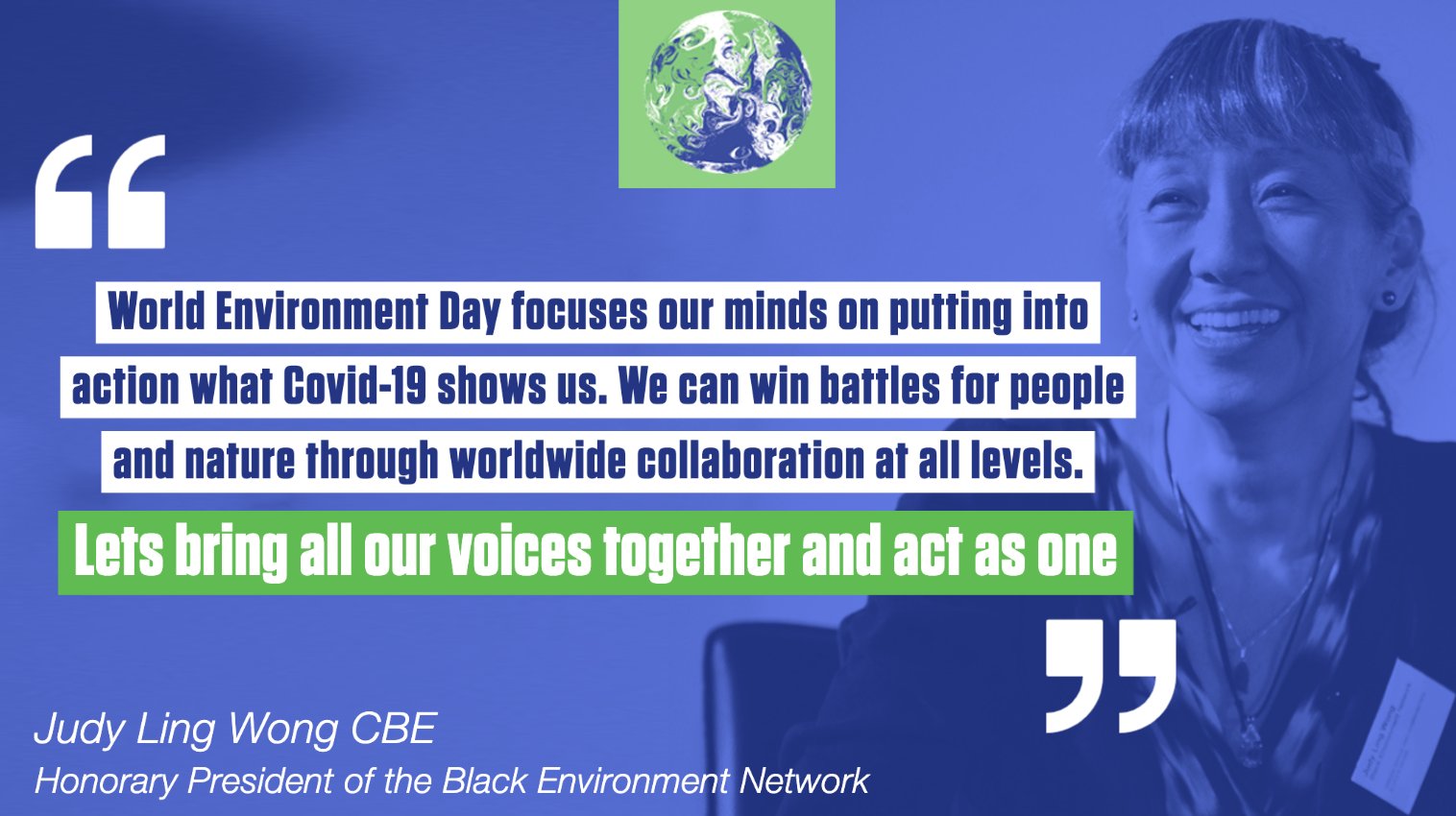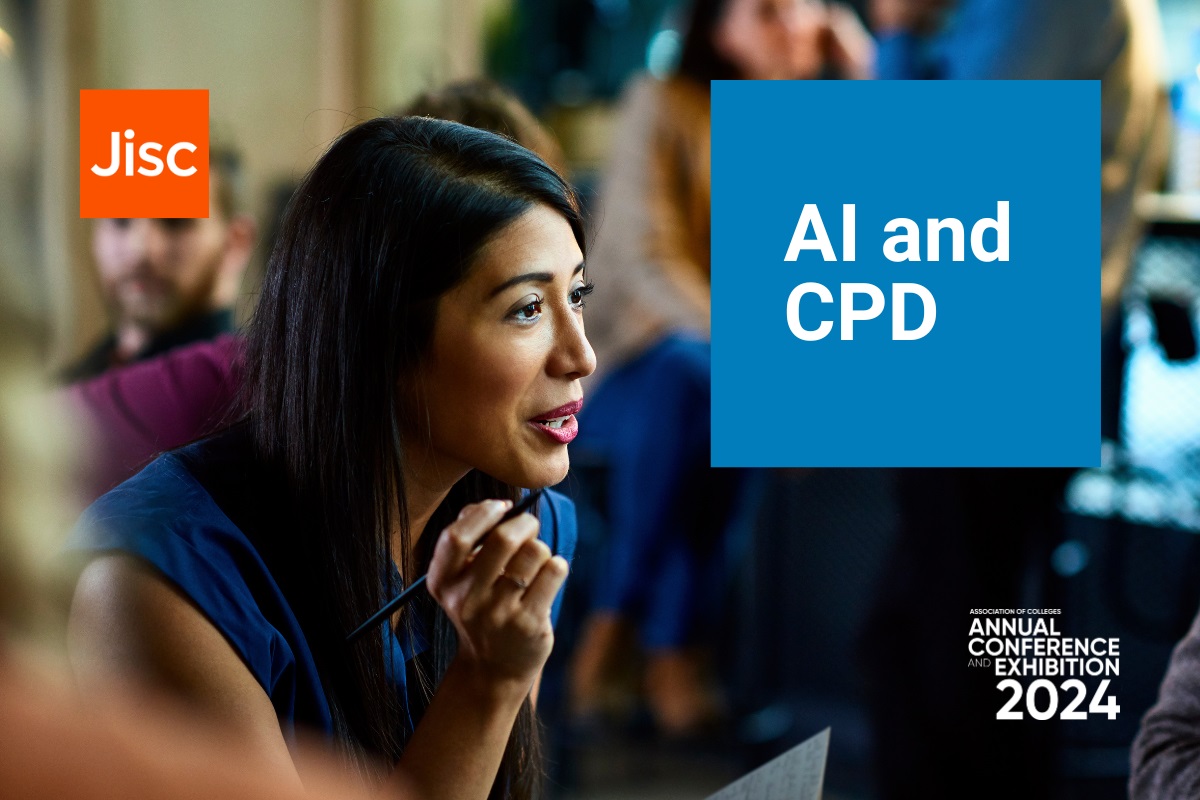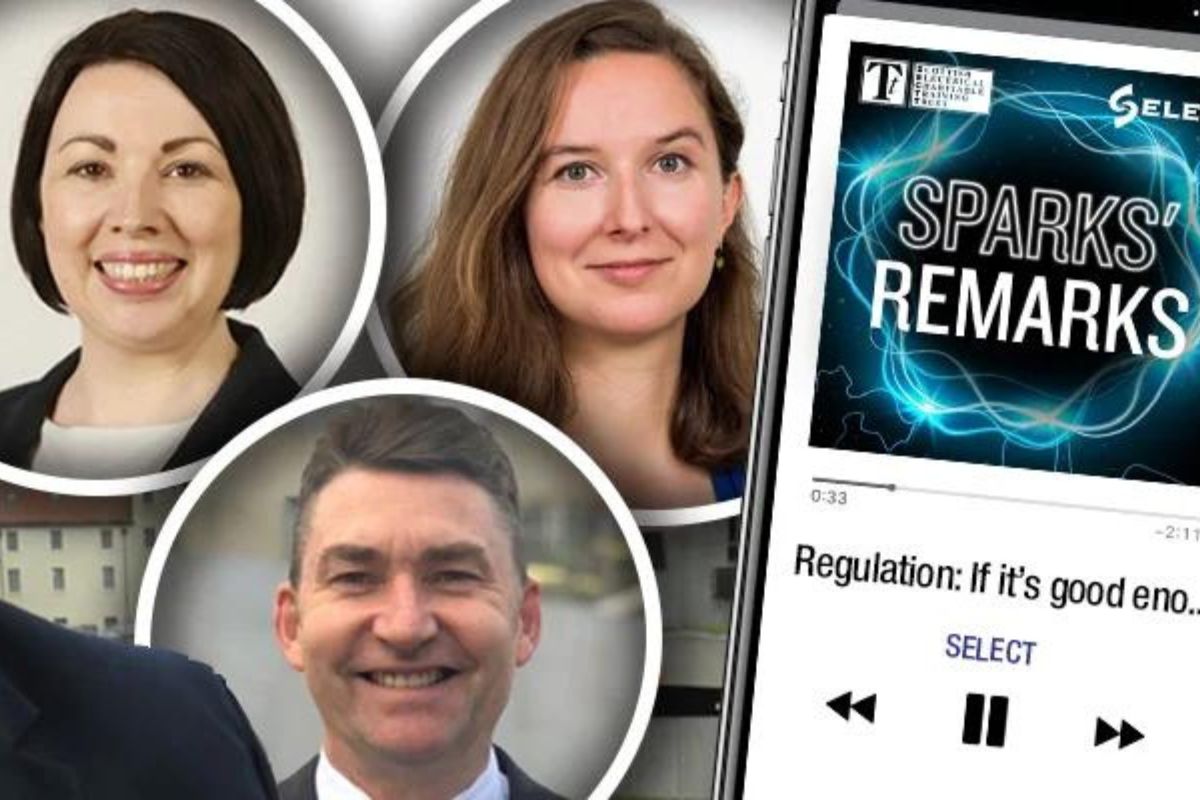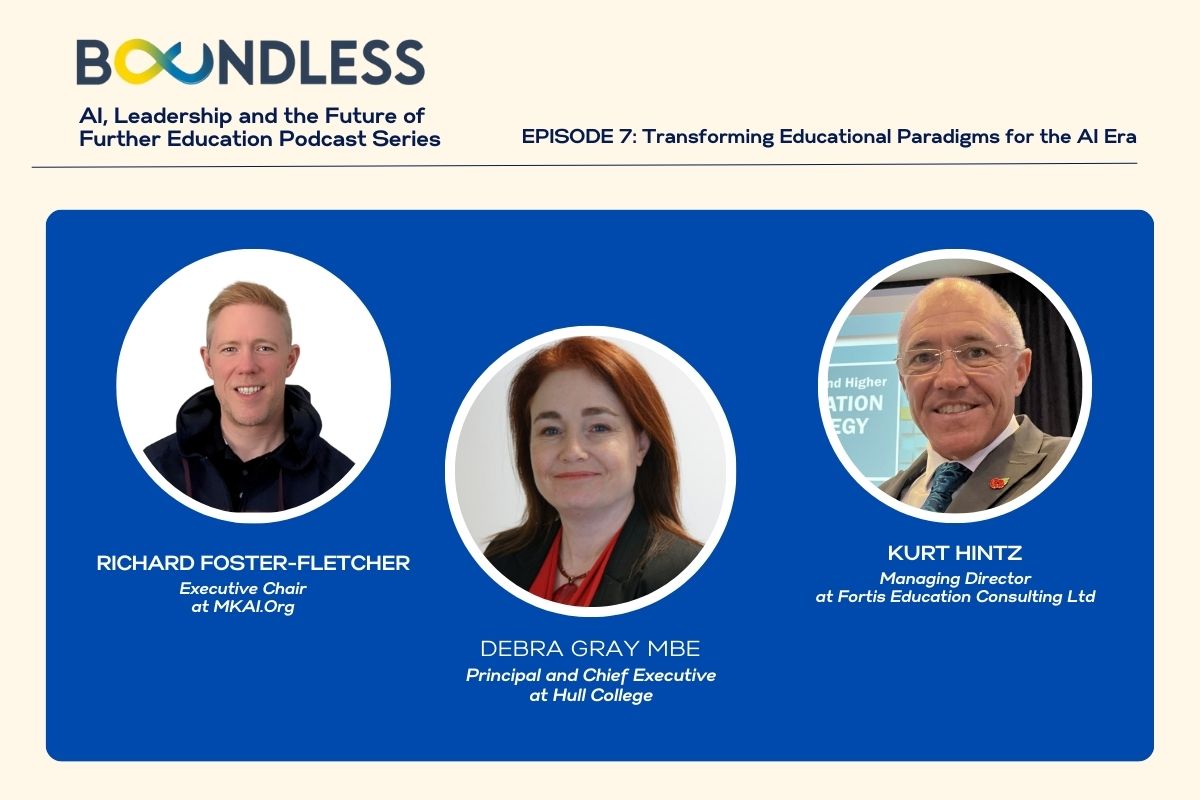The Institute talks… about Green Apprenticeships

For this #WorldEnvironmentDay episode of The Institute talks, we talk about green apprenticeships.
We are joined by Judy Ling Wong and Lee Stanford.
Judy Ling Wong is an artist, painter and environmentalist best known as the honorary president of Black Environment Network, who is proud to chair the panel.
Lee Sanford is the engineering training manager for National Express West Midlands looking at what can be done in terms of adding green apprenticeships and different technologies into the fleet.
The Institute talks… about Green Apprenticeships: Transcript
Helen Dalton
Hello, I’m Helen Dalton a relationship manager at the Institute and I also work on the green apprenticeships project, I’m your host for this podcast today. For this special green apprenticeships podcast I’m joined by Judy Ling Wong and Lee Sanford welcome both would you like to introduce yourselves, Judy?
Judy Ling Wong
I’m Judy Ling Wong I’m an artist, painter and environmentalist best known as the honorary president of Black Environment Network, I’m very proud to chair this panel.
Helen Dalton
and Lee.
Lee Sanford

Yeah, my name’s Lee Sanford I’m the engineering training manager for National Express West Midlands looking at what we can do in terms of adding green apprenticeships and different technologies into our people and fleet.
Helen Dalton
Thanks so much. I’m so glad you could both join me today. Let’s get started, so Judy can you tell me more about the green apprenticeships advisory panel why is it set up and what does it do?
Judy Ling Wong
The context for the green apprenticeship advisory panel is that the government is planning to create two million good quality green jobs by 2030 and apprenticeships and wide and technical education can really lead the way in terms of training. So the government published a 10 point plan in November for green industrial revolution backed by 12 billion pounds of investing and we will plan to help implement this. The green apprenticeship advisory panel will ensure that apprenticeships play a central role in the national green led recovery and will be well placed to help the uk meet its net zero carbon emissions target. So we will advise when existing apprenticeships could be made greener and also identify gaps that could be filled by new green apprenticeships. The panel will also feed into the new green jobs task force and help to create the plan in general for the necessary green jobs and skills working through each sector in turn over the coming months.
Helen Dalton
Thanks Judy so speaking personally what made you want to join and be chair of the green apprenticeships advisory panel?
Judy Ling Wong
Well, you know the big thing that really attracts me about environmental participation is the joining up of people and nature and what more can you do than to give people green jobs to join up people in nature. If people really want to contribute to a green revolution having a green job is devoting your entire working hours to a green future and people should be very proud of this. We want to encourage people to think about dream jobs, we want to particularly encourage young people to learn about the range of new jobs which is not easy, some of these jobs are very complicated to understand. So, in the coming months we’re very much hoping that colleges will help us local, community groups and businesses will help us, plus going to schools to talk about this and introduce the various facets of jobs in the sector that people can actually begin to imagine themselves in.
Helen Dalton
Thanks Judy. So, Lee you’re a member of the green apprenticeship community so what do you do and how does that role link in with what the panel does?
Lee Sanford
I’m a fairly new member to the team being perfectly honest, however I can massively see the importance of what the advisory panel is trying to achieve and being a member will allow me to add in a different perspective when looking at other types of green technologies within apprenticeships; and where others may be able to benefit from my experiences and more so I can benefit from their knowledge and their specialist sectors. I believe the community will be able to identify and put forward some really credible and realistic options for adding green and sustainable technologies into a substantial portion of apprenticeship standards.
Helen Dalton
Thanks lee and what made you want to join the community?
Lee Sanford
My entry into the community really came off the back of a conversation with the Institute for Apprenticeships around the national express 2030 zero emissions strategy, and how I can gain exposure for the unique challenge that I have around creating a Zero emissions apprenticeship pathway, which is within the Bus and Coach Engineering Technician standard. And I’m passionate about being able to provide career pathways for anyone who wants to take up an apprenticeship, and especially with zero emissions being at the heart of our National Express journey. I think there’s no better place to learn and share ideas than being part of a dedicated group of industry experts who have the same passion but in their own fields.
Helen Dalton
Thanks lee and just a question to you both really you know, why do you think that green apprenticeships are so important?
Judy Ling Wong
The green apprenticeships are so important because it provides through an apprenticeship really high-quality training and these apprenticeships are shaped by employers who know the industry needs, but we also need other dimensions to come in they connect with the community’s contribution, so this is actually a huge area of development at the moment. As I said creating 2 million green jobs is a huge thing for our nation. So, we want people to increasingly join in with this conversation to map out the whole framework which we need to make this a reality. Green apprenticeships are at the centre because without the quality and the roots to these jobs, these jobs will not be a reality. But at the same time the framework for access to these jobs and getting people to aspire to them to know that the new green jobs are coming and wanting them is very much part of the developing picture.
Lee Sanford
I think for me um introducing green and sustainable technologies into as many apprenticeships as possible will help create new ways of thinking and solving current issues but in non-harmful ways to the planet. The more we teach people now about how new technologies can potentially help to slow down the effects of climate change bringing in new sustainable and cleaner ways of conducting our businesses will help everyone, and we have to be able to move forward and evolve our current practices towards renewable and green technologies for ourselves and more importantly the future generations who will be learning those skills from us. National Express are also making the west midlands pioneer region for training up apprentices in new vehicle technologies. This training will inevitably work its way across into other sectors such as HGV, light vehicle fleets, fire engines for example and we’ve been very open with other businesses in that area about our electric vehicles and hydrogen and we recognize that we have a responsibility as a business to share our experiences and knowledge in that area.
Helen Dalton
Thanks Lee you referenced before that National Express have got a green strategy, can you tell me a bit more about that?
Lee Stanford
I’m proud to say that in the UK national express are leading the way to both reduce and then eliminate exhaust emissions on the roads of Birmingham with the name of creating a cleaner greener fleet of vehicles. The first stage of this was to bring all of the current fleet in line with the highest euro emissions rating and these outputs the lowest amount of particulates and emissions from any diesel engine. This also brings the fleet in line with the Birmingham clean air zone that’s due to begin on the June the first, allowing our vehicles to provide the cleanest levels of diesel emissions on the road today.
The second stage of this plan is to start to remove those diesel-powered vehicles and replace them with vehicles that have zero emissions. We’ve already introduced 29 fully electric vehicles into the fleet operating around south Birmingham the Coventry area, and with Coventry winning the bid to become an all-electric bus city by the winter of 2025 this will see hundreds more electric buses being introduced into that area specifically. Express also has a 2030 strategy for the entire UK National Express bus fleet that’s to be powered by zero emissions technologies. This will include not only a further rollout of fully electric vehicles as I’ve already mentioned, but it will also but it will also include cutting-edge technologies such as hydrogen fuel cell powered buses. We’re going to be operating 20 hydrogen powered double deck buses on behalf of Birmingham city council across the greater Birmingham area when they arrive later this year. The strategy to become fully zero emissions by 2030 I believe is a huge step forward in clean bus travel, and it’s very exciting for us to be involved in. Being in both engineering and training it’s my responsibility to ensure that our training for both current and new staff is of the highest quality and relevant to what is required now and in the future. Working alongside our engineering training academy partnership with southern city college we are already introducing electric vehicle qualifications as an add-on to the apprenticeship routes this will help ensure that future technicians are ready for that change to come within bus technology. My overall goal would be able to create a zero emissions pathway within the bus and coach apprenticeship so that we can start to focus our efforts on teaching our future technicians all about this new and exciting way of providing the power within our Birmingham bus network. It also has to be noted that this isn’t just for new apprentices I’m working alongside our other significant training partners such as gtg west midlands we are also bringing the electric vehicle qualifications to our current engineers so they’re able to work on the new vehicle technology as it becomes embedded within our fleet.
Helen Dalton
Thankfully I think that’s a really interesting point about the fact that it’s not just about young people, it is about upskilling the existing workforce as well. Judy how do you see apprenticeships working in the future and especially green apprenticeships?
Judy Ling Wong
I think it’s important to realize that apprenticeships will raise the standard of training in this country. We aspire to making apprenticeships the gold standard of training and this makes a real difference, because quality delivers what we want as an outcome and net zero is very much part of it. Besides looking at green jobs which of course is a huge chunk of work at this very moment to deliver net zero. We also realize that all jobs in all of society has a role to play in getting us to be greener, so the institute for apprenticeships and technical education is not just concentrating on developing this area of new green jobs. It’s also developed as sustainability framework which is a reference article for people who are having jobs of any kind to refer to, to find out what are the sustainability elements of all jobs. For example, a job like in the industry of hair and beauty, the chemicals that I use, how you dispose of them, how you protect yourself and the environment are all part of this framework. So, we look forward to a greater influence across all kinds of jobs quite beyond just the obviously new jobs. Of course, website of the Institute for Apprenticeships and Technical Education is open to everyone, it’s not just people working with apprenticeships that can benefit from this, anyone can look up their sustainability framework. So, we hope that more people will talk about this and access the opportunities for all of us to seriously contribute.
Helen Dalton
Thanks Judy. I think again that’s a really interesting point you know, getting that conversation going around what everybody can do to contribute to combating climate change, and so what do you think employers can do to help combat climate change or embed sustainability in their business? If you’re going to give them a bit of advice about where to start? That’s a question to both of you, where do you think they should begin?
Judy Ling Wong
They can begin anywhere because there are sustainability elements in anything, for example, they can look at their workplace, they look at the insulation of their building, the energy efficiency of their building, as well as what they do with their workforces, they can look at how they package their food in that canteen, whether it’s sustainable they can ask employees to look at how they travel, how they think about their own energy use. So, both on the home fronts and the work fronts when we start this conversation, we find that the job about attaining net zero is everywhere, and I think that starting this conversation is an exciting move and the focus for our time.
Lee Sanford
I think with a focus on transport, it would be good to see other large bus and coach operators follow the lead of National Express and commit to becoming a zero-emission operator within a realistic time scale for them. Within National Express we look at a variety of things in order to help reduce our impact on climate change. One example of this is that we put all our drivers through a defensive and fuel-efficient driving course, this helps to reduce collisions, it helps reduce wear and tear on vehicles and it helps to reduce our fuel usage. Other examples are simple things such as office recycling and automatic lighting to help cut our energy usage it is vital that all businesses look at what they can be doing to integrate green and sustainable options. As such we have just appointed an environmental strategy manager to make sure that we’re doing as much as we possibly can within our business.
Helen Dalton
Thanks lee that’s really interesting from both of you, as you say you have to start somewhere, don’t you? I think sometimes people find it very intimidating thing to think about moving in this direction, so how would you advise people and businesses to stay on the journey they’ve started? Judy over to you.
Judy Ling Wong
Well for business and for everyone else it is the same issue, isn’t it? It is overwhelming especially as climate change is frightening you know with what we are being faced with. So it is a great thing when we seek to find out what we can do but we need support we don’t want to be isolated we are human beings we like to be in a group. So if we stimulate ourselves to do things and come together with friends as a group we compare notes, we can actually be network perhaps of a local group that is doing this, or we can actually talk to businesses to come and help us see what we’re doing. So, when we’re doing things with each other it’s less overwhelming we take one step at a time, but we recognize that we’re doing something, and when we when we succeed in making a difference we celebrate; that is so important. So, for businesses is the same they have staff networks, and they can stimulate others by example of what they do as well.
Helen Dalton
Thanks Judy. Lee what’s happening at national express?
Lee Sanford
I think within our business and our area I mean it’s all about finding your own way. At the moment this is such a such a new topic within transport. It’s what can you do? How can we do it? Who do we need to collaborate with in order to find that information? And things that we do, certainly in industry, you know National Express work quite closely and hand-in-hand with vehicle manufacturers and the likes of Alexander Dennis and Wright’s bus and that’s in order to create new developments. To look at what we need as a customer to look at what our customers expect and what they need from a product, and at the moment we’re doing that within electric vehicles and hydrogen really quite closely to try and look at how we reduce emissions and reduce our carbon footprint.
I think from Judy’s point about recognition is also a big one, you know awards and recognition within industry are a really big thing and I don’t think there’s enough currently at the moment that’s being done to celebrate all the good work so promotion, advertising, awards I think all of those will help to bring people on board and create a bit more of a buzz and just get that that buy-in to the achievements that are already going on within this sector.
Helen Dalton
Thanks Lee that’s really interesting. So, on a personal level what’s your one tip for people if they wanted to go out and start being greener right now?
Judy Ling Wong
My one tip is to get informed, because it’s not so straightforward sometimes I think that listening to lee is a great thing I talk generally about approaching net zero and so on, but he made it come to life you can see how much detail there can be when you really look into the situation and it’s true not just for businesses, it’s for everyone. We can look at detail in our own lives in a way that we come up with an entire list and if we want a happy green future for all of us, we must be motivated to look into the details and get ourselves informed.
Lee Sanford
I think I echo Judy’s comments there in terms about being informed. I mean my advice would be don’t be scared to speak up about having a green agenda conduct some research and talk to others within your sector potentially initially who may be having the same challenges and see how they’ve approached it. Ultimately there is no one-size-fits-all solution to green technologies and so my advice again would be conduct research ask questions, as there will be somebody who’ll be able to point you in the right direction. Ultimately doing something is better than doing nothing at all, so don’t be afraid to take that first step on a green journey.
Helen Dalton
So, any final thoughts, Judy what are you most looking forward to in this green space?
Judy Ling Wong
The picture we have given, see that there are many dimensions we worked at that can be kicked off by this whole notion of new green jobs and around apprenticeships there’s so much to be done. Lee has been talking about what business can do when they think hard and recognize what they’re already doing and push it out into the world through awards and so on. So, I think that green issues will become more and more important across apprenticeships and the wider world of work, and I really look forward to all of us contributing to a greener future.
Helen Dalton
Thank you and lee as an employer representative?
Lee Sanford
For me I’m really really excited about bringing in all these new technologies and greener sustainable futures to the careers, now of apprentices that are coming through you know these are our future. If we teach them correctly now I think the future is going to be in a good place
Helen Dalton
Thank you so much both of you been really inspirational, especially those final comments where you’re telling people it really is within everybody’s power to do something.
That’s all we have time for today in today’s episode I want to say a huge thank you again to our guests for taking the time to talk to us, thanks for listening and look out for the next episode bye.








Responses